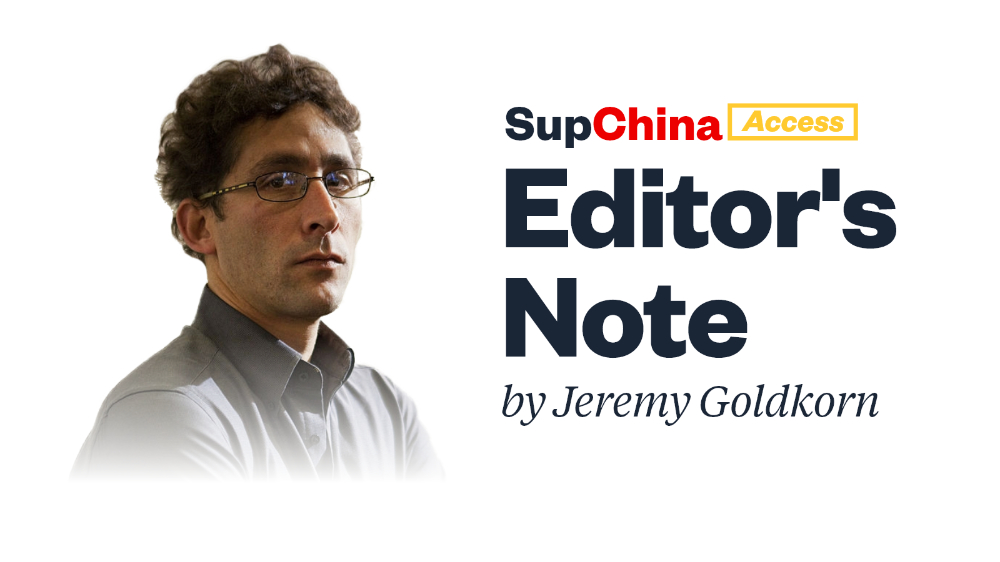Editor’s note for Tuesday, August 4, 2020
A note from today's editor of the The China Project Access newsletter.

My thoughts today:
On May 8, the U.S. Department of Homeland Security announced new restrictions on visas for Chinese journalists working for non-American outlets, the latest round in a tit-for-tat media spat between the U.S. and China. Those journalists were limited to 90-day work visas, a significant downgrade from the open-ended, single-entry stays that most journalists with Chinese passports and a valid entry visa were previously allowed.
Today, Chinese Foreign Ministry spokesman Wāng Wénbīn 汪文斌 told reporters at a daily briefing that no Chinese journalist in the United States had been granted a visa extension since then. “If the U.S. persists, China will take a necessary and legitimate response to safeguard its rights,” he said.
Wang vowed that China would retaliate if the U.S. persisted with “hostile action” against Chinese journalists. “Wang did not say how many Chinese journalists were affected or what retaliation China might consider,” per Reuters, “but the editor of China’s Global Times newspaper said earlier [on Twitter] U.S. journalists based in Hong Kong would be among those targeted should Chinese journalists be forced to leave the United States.”
As with the Trump administration’s plans to either ban or force the sale of TikTok to an American company, it seems that the U.S. and China are headed for a grim convergence of techno-nationalism and restrictions on media freedoms.
Speaking of techno-nationalism, the Hinrich Foundation (dedicated to “advancing sustainable global trade”) has a new paper out on that very subject: Techno-nationalism and the U.S.-China tech innovation race.
Meanwhile, “conservative journals and clerics in Pakistan” are raising concerns over China’s treatment of Uyghurs, which has prompted Beijing to ask Islamabad “to manage the negative sentiments, warning that the backlash could hurt the China-Pakistan economic project,” according to Indian news network WION. Note that it is worth applying caution to statements from Indian media about Pakistan and its relationship with its “iron brother,” China.
Finally, last week we noted that China’s central bank — the People’s Bank of China (PBoC) — urged the State Council’s antitrust committee to launch an investigation into Alipay and WeChat Pay. Today, the Financial Times reports that PBoC “is hoping its new digital currency will reduce the dominance of Alibaba and Tencent in digital payments,” and that “regulators and executives at Ant, Alibaba’s financial affiliate, said PBoC officials have Alipay and WeChat Pay…firmly in their crosshairs.”
Our word of the day is inconceivable (不可思议 bùkě sīyì), also translated as “unimaginable” or “unbelievable.”
—Jeremy Goldkorn, Editor-in-Chief






